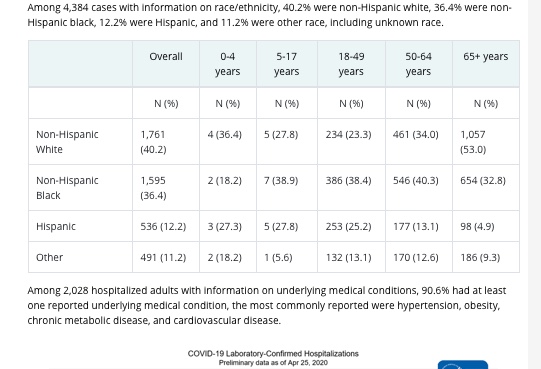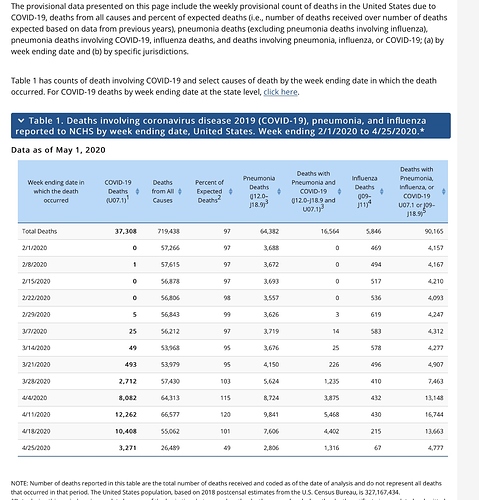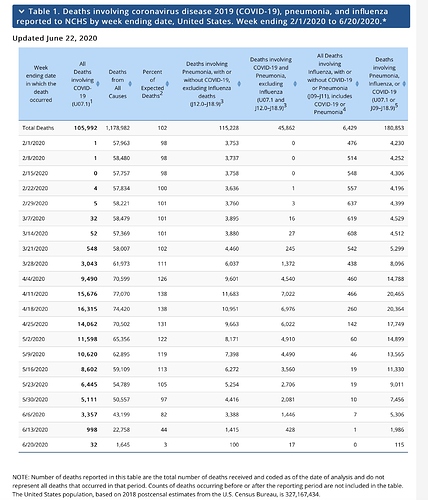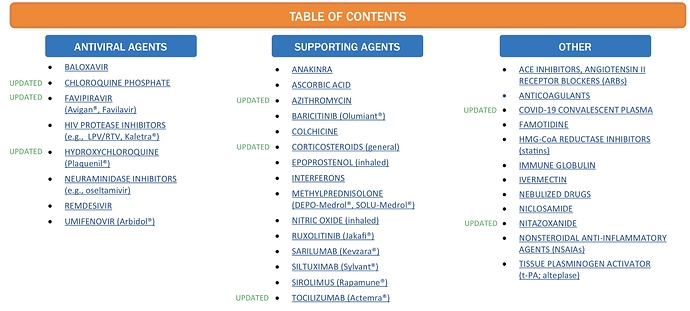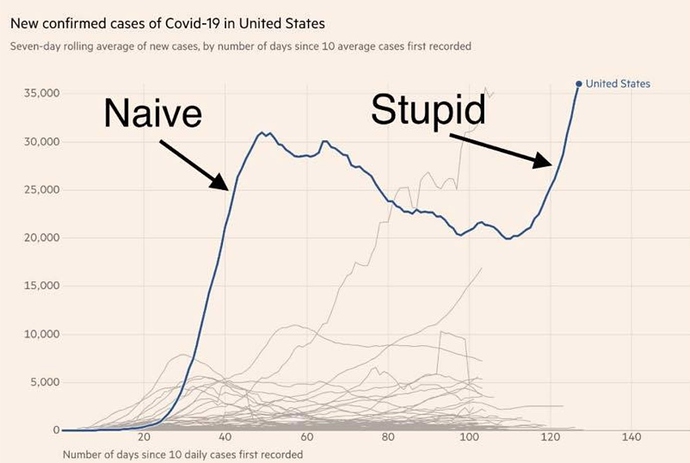*Morning: *
- By now, I dare to say, all that read this form, have probably heard about a rush by the powers, to come up with a vaccine for this C.C.P produced Virus.*
- To if it has merit, is up to your individual belief.*
-
- When it comes to vaccinations, its safe to say, very few people follow the research and history of them. It’s a complicated science that bores most.*
- We humans are more concerned of, what type of food to feed our pets, what tires to put on our auto, what fashion is in vogue. *
Just give me the “shot” and let me get on with my life, is a freedom of our choice. … What if …it becomes mandatory ?
It’s not just for you then, BUT ALL in your family tree. Grand parents, Spouses, teens,…(and think hard about this)… your grade school age, and infants?
-
Your choice. : What follows is a vaccine story. Https. Link is at the end.
This is just one story. I hope you don’t find it boring. C.s
_____*
APRIL 23, 2020
The Dengvaxia Disaster Was Twenty Years in the Making—What Will Happen With a Rushed COVID-19 Vaccine?
Print
Editorial by Lyn Redwood, President, Children’s Health Defense
Article that follows by the Children’s Health Defense Team
Vaccine development is a topic that is on the minds of everyone as the world grapples with ways to protect our health and the health of our loved ones from coronavirus. The team at Children’s Health Defense decided to write an article about Dengue Fever because an important part of medicine’s body of knowledge comes from the opportunity to learn from past mistakes.
Dengue fever is a common disease in more that 120 countries and, like Coronavirus, has been the target for a vaccine for many years. The development and licensure of Dengvaxia® vaccine by Sanofi spanned more than 20 years and cost more than 1.5 billion U.S. dollars. But the development of the vaccine turned out to be tricky. Dengue vaccine antibodies can also make the infection worse, especially in infants and children who have never been exposed to the virus. The virus may actually use the antibodies created by the vaccine to spread the virus throughout the body. So an infection with dengue — when your blood already has antibodies in it — can actually enhance the disease resulting in deadly complications.
Despite the fact that Sanofi tested Dengvaxia in several large clinical trials with more than 30,000 kids globally and published the results in the prestigious New England Journal of Medicine , there were serious problems. According to epidemiologists who reviewed the data, the trials were riddled with “small inaccuracies, missing data, and uncalculated risks.” Buried in those clinical trials was a disease enhancement safety signal, but industry and the World Health Organization (WHO) turned a blind eye to the problem, calling it a “theoretical possibility.” Dengvaxia was subsequently administered to thousands of children in the Philippines. It was reported last year that the deaths of approximately 600 children who received the vaccine are under investigation by the Public Attorney’s Office. The vaccine has been permanently banned in the country.
What is also very concerning is that even after Dengvaxia led to tragic injuries and deaths in the Philippines, the FDA moved forward and licensed the vaccine in the U.S. According to a May 1, 2019 press release, the agency granted the application Priority Review under a program intended to encourage development of new drugs and biologics for the prevention and treatment of certain tropical diseases. Such actions by the FDA raise serious questions about safety, not only for the Dengue vaccine, but for future vaccines in development.
Questions about vaccine safety are critically important since past research has documented the same concerns with disease enhancement with coronavirus vaccines. Peter Hotez, MD, PhD, Dean of the National School of Tropical Medicine at Baylor College of Medicine worked on a vaccine for coronavirus in 2016 that stopped just short of commercial development. Despite having “tried like heck” to obtain funding to move his vaccine into clinical trials, Hotez told a U.S. Congressional Committee (on March 5) that coronavirus vaccines are scientifically challenging and have a unique potential safety problem—the same problem with immune enhancement that caused the deaths of children who received the dengue vaccine. When Hotez observed this immune pathology in his coronavirus laboratory animals, he thought, “Oh my God, this is going to be problematic.”
How can we be sure the rush to create a coronavirus vaccine will not produce another disaster like the dengue vaccine? Sadly, at least as of the time being, there is little assurance that it will not happen again. One of the issues that must be addressed are the conflicts of interest inherent to a system that allows vaccine patent royalties to flow to the same government agencies (HHS, NIH, FDA and CDC) that are responsible for research, approval, recommendations to use vaccines, safety surveillance and compensation for injuries.
When automobiles were found to have preventable and fatal defects, consumer advocate Ralph Nader’s book, Unsafe at Any Speed , led to congressional hearings and ultimately the creation of an independent watchdog safety agency. To assure that vaccine safety becomes a priority, we must step back and review each step of the development, review, approval, safety surveillance and compensation process. It is time for President Trump to renew his plan to create a vaccine safety commission to make sure that the process has a review conducted by a multidisciplinary, independent watch dog team before the approval of a coronavirus vaccine.
The Dengvaxia Disaster Was Twenty Years in the Making—What Will Happen With a Rushed COVID-19 Vaccine?
By the Children’s Health Defense Team
For several weeks, Dr. Anthony Fauci and Bill Gates have been beating the drum about a COVID-19 vaccine, seeking to keep the world’s coronavirus optics focused on a medical intervention that Gates acknowledges to be risky enough to require indemnification against lawsuits. The two are casting a COVID-19 vaccine—which they speculate could be ready in as little as 18 months—as the passport for a return to “normalcy.” The two opinion leaders’ gambit seems to be backfiring among people savvy enough to understand that Fauci’s and Gates’ organizations, pocketbooks and agendas are driving the rush for an indemnified vaccine. Other Americans may be too distracted by the historically unprecedented lockdown, however, to think through the safety issues raised by a potential COVID-19 vaccine.
… the Philippines’ mass dengue vaccination program—implemented with undue haste—not only killed children but provoked protests, criminal investigations, indictments, revocation of the vaccine’s license in that country and a plummeting of parental confidence in vaccine safety from 82% to 21%.
Americans would be well advised to revisit a virus-and-vaccine cautionary tale that briefly captured front-page attention a year ago. In April 2019, the U.S. Food and Drug Administration (FDA) approved Sanofi Pasteur’s Dengvaxia vaccine, joining 19 other countries in granting regulatory approval to the world’s first dengue vaccine. The FDA gave its green light not long after the Philippines—the first country to roll out the vaccine widely—witnessed hundreds of distressing hospitalizations and deaths in 9-16 year-olds, representing a clear safety signal.
Dengvaxia’s fallout was so dramatic that it even overrode the U.S. media’s customary whiteout of vaccine safety problems. As summarized by National Public Radio (NPR), the Philippines’ mass dengue vaccination program—implemented with “undue haste”—not only killed children but provoked protests, criminal investigations, indictments, revocation of the vaccine’s license in that country and a plummeting of parental confidence in vaccine safety from 82% to 21%.
… in some individuals, subsequent infection with a different dengue virus can increase the risk of severe outcomes—a phenomenon known as “disease enhancement.”
Viral vaccines and “disease enhancement”
Given that an estimated 40% of the world’s population is at risk of mosquito-borne dengue infection, it is not surprising that the vaccine industry has had a dengue vaccine on its list for decades. There are four types of dengue virus that can trigger infection, albeit with a highly variable trajectory that ranges from asymptomatic infection or “mild and non-specific febrile illness” (together representing about 75% of cases) to “classic dengue fever” and, in an “occasional” subset, more severe outcomes such as plasma leakage, bleeding, shock or death. In children, experts believe the majority of dengue infections are subclinical. Researchers note that environmental and host immune factors play a significant role in shaping both susceptibility and outcomes.
Natural infection with one type of dengue virus provides long-lasting protection against the same type but only short-term protection against the other three varieties. The vexing result is that, in some individuals, subsequent infection with a different dengue virus can increase the risk of severe outcomes—a phenomenon known as “disease enhancement.” In a 2018 review, researchers listed reports of “enhanced illness” resulting from influenza, respiratory syncytial virus (RSV), Zika, West Nile virus, dengue and coronavirus—and emphasized that either infection or vaccination could produce this response.
In 2018, the WHO’s Global Advisory Committee on Vaccine Safety reviewed some of the deaths associated with Dengvaxia but stated that it could not determine whether the vaccine was causally related to the “vaccine-related immune enhancement.” This disingenuous conclusion flies in the face of decades of evidence showing some viral vaccines to be capable of “subverting” the immune system and provoking “exacerbated illness.” It is doubtful that WHO or Sanofi are unaware of this phenomenon, which numerous publications acknowledge as a “major obstacle” for the development of safe dengue and other viral vaccines. After the problems in the Philippines, however, Sanofi’s global medical director asserted that “In hindsight . . . Sanofi wouldn’t do anything differently.”
A dengue expert who develops vaccines for the U.S. military issued warnings about Dengvaxia’s risks ahead of time—vainly cautioning that vaccinating 9-16 year-olds who were “seronegative” or “dengue-naive” at baseline (that is, had never before been exposed to dengue) was likely to significantly augment their lifetime risk of severe disease when later exposed to dengue. (About 21% of vaccinees were seronegative.) Why did this industry insider—who has been a paid dengue vaccine consultant to Takeda, Merck, Sanofi Pasteur and SmithKlineBeecham—voice these concerns and condemn international health institutions for unethical, unscientific and “contorted explanations” that “fail[ed] to identify breakthrough dengue disease in vaccinated subjects as serious adverse events”? As he pointed out in numerous letters and articles, the potential for vaccine-enhanced dengue disease was readily apparent in Dengvaxia’s clinical trials, but both Sanofi and WHO chose to ignore the evidence.
Belatedly—a year and a half after the launch of the Philippines’ disastrous vaccination campaign—Sanofi announced that “new information” was prompting the company to declare that “vaccination should not be recommended” for seronegative individuals of any age. Repackaging Dengvaxia as a vaccine solely for individuals who have had at least one laboratory-confirmed bout of dengue is easier said than done, however, because many mild dengue infections go undiagnosed and undocumented.
The dengue vaccine pipeline
Sanofi reluctantly revised its recommendation to provide Dengvaxia only to individuals with evidence of past infection, which “leaves a substantial unmet need” that other dengue vaccine developers appear only too eager to exploit. Although Sanofi’s formulation—which took two decades and two billion dollars to develop—is the first dengue vaccine ever to make it out of the pipeline and into the marketplace, two other vaccines (TAK-003 and Butantan-DV) are currently undergoing late-stage clinical trials in Asia/Latin America and Brazil, respectively.
Dengue vaccine development has been marked by strong for-profit industry involvement. In addition, there has been “wide participation and co-ownership” by U.S. government institutions in dengue vaccine research and development, even though dengue disease poses little threat on the U.S. mainland. With dengue-endemic areas limited to Puerto Rico and a few offshore territories and protectorates, HHS—the umbrella agency for the National Institutes of Health (NIH), Fauci’s National Institute of Allergy and Infectious Diseases (NIAID), the CDC and the FDA—owns 65 dengue-vaccine-related patents, dwarfing the 19 owned by Sanofi and the 12 and 4 owned by GlaxoSmithKline and Merck, respectively. All of the private companies involved in dengue vaccine development share patents with U.S. government agencies; meanwhile, very few patent applications have been filed in developing countries.
CDC scientists designed and constructed the TAK-003 vaccine and then licensed it to Japan’s Takeda Pharmaceutical Company, Asia’s largest pharmaceutical conglomerate. However, preliminary analyses of the clinical trial results suggest that TAK-003 may suffer from similar problems as Dengvaxia, providing “unbalanced protection among the four types of dengue” that could “increase the risk of severe disease after exposure to a second type of the virus.” Takeda plans to apply for approval in dengue-endemic countries anyway.
Some experts are placing their bets on the third finalist, Butantan-DV, developed by none other than NIAID. NIAID has sponsored Butantan-DV clinical trials in Brazil since 2013, licensing its vaccine technology to Brazil’s Butantan Institute and launching the most recent trials in 2016. Not content to lurk in the background, NIH and NIAID have taken pains to call attention to their role in the vaccine’s development; publications presenting clinical trial results have titles referring to the “National Institute of Allergy and Infectious Diseases tetravalent dengue vaccine” and the “National Institutes of Health dengue vaccine.” In studies published to date, investigators only monitored adverse reactions for 21 days.
Mosquito versus needle
The Dengvaxia experience—involving a skewed immune response and enhanced risks—raises questions “applicable to all dengue vaccine candidates” and a number of other viral vaccines. One not-often-discussed consideration pertains to the “considerable differences between a wild-type [dengue virus] delivered by a mosquito versus needle administration of a vaccine,” which have the potential to elicit different immune responses. Instead of acknowledging these vaccines’ potentially unconquerable risks, why not focus on training health care workers in the provision of the supportive care known to be “very effective when delivered by experienced practitioners”? Even in severe cases of dengue characterized by vascular permeability and fluid loss, practitioners who “accurately and rapidly” replace fluids can stabilize patients’ condition—“and rather quickly”—with the result that “the vascular permeability phenomenon abruptly disappears.” In addition, fruitful avenues of research could include studying the environmental and immune system factors associated with the minority of cases that involve more severe dengue outcomes.
With vaccine damage occurring in association with many different vaccines, it is unclear why so many individuals and organizations jumped on the anti-Dengvaxia bandwagon last year, but—with a rushed COVID-19 vaccine in the works—their words of warning are worth heeding. As NPR noted, “the debacle in the Philippines offers a key lesson for governments and manufacturers when it comes to approving and selling new vaccines: Slow down.” The dengue expert who presciently warned about Dengvaxia’s dangers put it this way:
*Dengvaxia-enhanced disease has created a major ethical dilemma for the vaccine community, an enduring public health management crisis, and legal nightmare. Vaccines should not harm recipients, directly or indirectly. WHO and the manufacturer owe the customer a safe product.
From. …*The Dengvaxia Disaster Was Twenty Years in the Making—What Will Happen With a Rushed COVID-19 Vaccine? • Children's Health Defense
